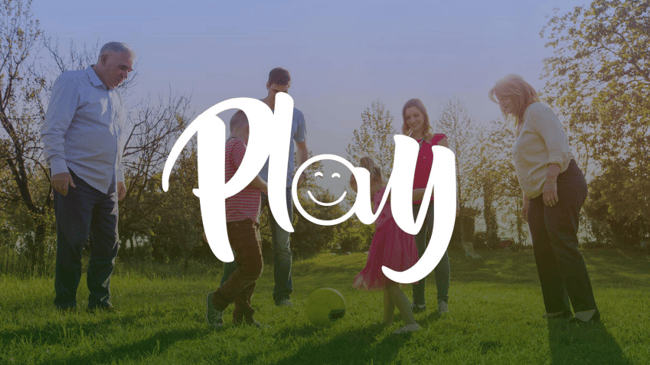We get it, it’s hard to break bad habits. But when it comes to building healthy habits, small decisions add up over time. That is why we are using our 10 Healthy Habits as the foundation of our new Health & Wellbeing program which is called GoodForYou.
They are easy to follow habits that have stood the test of time and aren’t anything crazy or extreme, but they consistently allow us to lead a healthy lifestyle for years and years. When implemented these habits have a significant impact on your physical and mental wellbeing.
So here are some top tips from the Synergy Team to integrate these healthy habits into your daily life.
1. REDUCE FAKE FOOD

In simple terms, we see ‘fake’ foods as those that are highly processed and stripped of the vitamins, minerals and other nutrients we need to thrive. They often contain a long list of ingredients including added sugars, refined carbohydrates, added fats and other chemical additives. As a result, these are often very tasty but high in calories and low in essential nutrients to promote overall wellbeing.
Top Tips: Limit Fake Foods as much as possible.
This includes:
- Confectionery, lollies, candies, chocolate bars and milk chocolate. Ice cream and frozen desserts.
- Cakes, muffins, scones, croissants, brioche, biscuits or muesli bars.
- High sugar, low fibre breakfast cereals
- Sliced bread, and baked products with added sugars, emulsifiers and other additives.
- Canned, packaged, dehydrated and other ‘instant’ soups, sauces, noodles, and seasonings.
- Processed meat, poultry and fish including bacon, sausages, hot dogs, salami, chorizo, cured meats, jerky and burger patties, fish fingers and chicken nuggets.
- Carbonated soft drinks, energy drinks, sports drinks, powdered drinks, fruit drinks, cordials, sweetened teas, coffees, and any artificially sweetened drinks.
- Make gradual, smart swaps for more natural, whole versions of fake foods and
beverages and you may quickly find your taste preferences change and cravings subside. - You may also be rewarded by an energy boost, improved sleep or generally looking and feeling better!
2. EAT REAL FOOD

Real Foods are whole foods that are as close to their natural state as possible. While individual nutrition needs and Dietary Guidelines vary across the world, eating a variety of whole foods is the easiest way to get the nutrients you need to thrive.
Eating real, whole foods, from animals and plants, takes away a lot of the confusion. It also avoids falling into the trap of thinking you need to count calories or manage your carbohydrate, protein, or fat ratios! Who has time for that? Food is delicious, nutrition math isn’t. Eat vegetables, fruits, meats, fish, eggs, legumes, nuts, and seeds.
Top Tips: Eat more real, whole “FOOD”
- Aim to eat at least five servings or more of different coloured vegetables and fruits every day to get a variety of nutrients. (One serving is enough to fit in
the palm of your hand) - Choose minimally processed meat, chicken, fish, eggs, beans, legumes, nuts and seeds.
- Eat a variety of minimally processed sources of carbohydrate such as potatoes, corn, pumpkin, legumes and grains that you can tolerate. Include healthy fats with every meal including olive oil, avocado, nuts and seeds.
- Drink more water!
Variety is the spice of life, try new recipes with a variety of vegetables , herbs
and spices to flavour your food!
Make time for regular, real, whole food meals instead of grazing on snacks all
day.
3. MOVE SLOWLY LOTS

One of the things which make us uniquely human is our ability to walk on two limbs, tall and upright, and for long periods of time. Modern living often sees us idle and hunched over a desk. For optimal health, we need to find our feet again and move. The average office bound worker walks 3,000 steps per day – well short of the recommended 10,000 steps per day or the 40,000 we did as hunter gatherers!
The optimal ratio is 20:2. For every 20 minutes being seated, move or stand for
2 minutes to offset the risk of chronic disease.
Top Tips
- Try to at the very least stand up for a couple of minutes for every 20-30 that you are seated. Better still, move away from the desk to collect a few steps.
- Look for opportunities to stand and walk more frequently throughout the day, e.g. whilst on the phone stand up and move about; walk to talk to a colleague rather than emailing them; take the stairs rather than the lift.
- If you are regularly involved in meetings, explore conducting some of these whilst walking. We like to call these “sneaker meetings”.
- Or worst case, find a meeting room or space where you can all stand. Meetings tend to be far quicker, more productive, and more creative when everyone is standing.
4. MOVE QUICKLY ONCE IN A WHILE

Moving fast now and then can give you all of the health benefits of a longer slow jog but in a lot shorter timeframe. This can be achieved by moving as fast as you can (any way you like) for only a few seconds at a time. Complete this just a couple of times a week to see the health benefits:
Cycle, swim or run for 3 x 15-20 seconds preferably twice per week. A great return on investment in your overall health and wellbeing!
Top Tips
- Cycle, swim or run (or essentially perform any movement you like) as fast as you can for 3 x 15-20 seconds preferably twice per week. This is offers a great return on investment of time in your overall health and wellbeing!
- Pick an exercise and do it all out for 20 seconds, rest for 10 seconds before going all out again for another 20 seconds. Do this for 4 minutes. You can use almost any movement you can think of for this and mix it up – press ups, lunges, broad jumps, sprints. If you are going hard enough for the 20 seconds on, you will be surprised how good of a workout you can achieve in just 4 short minutes!
- As a warm up, rather than performing static stretches (where you stretch and hold for a period of time) conduct dynamic stretches that involve similar movements to what you will be exercising and actively move our body through a good full range of motion.
5. GET STRONG

Alongside moving our body both fast and slow, for optimal health we need to ensure our muscles remain strong. It is the ultimate example of ‘use it or lose it’.
Take the stairs (maybe even two at a time), carry your groceries to the car, piggy-back your kids. Look for daily opportunities to get and stay strong.
Top Tips
- Incorporate ‘Getting Strong’ into your daily routine: take the stairs (maybe even two at a time if you can safely), carry your groceries to the car instead of pushing them in the trolley, piggy-back your kids.
- Many forms of training have a "get strong" component - weights, CrossFit, Pilates, Yoga, Martial Arts, etc. But if you are not doing these, simple body weight exercises like push ups and lunges are perfect. Pick four body weight movements and do as many as you can of each for one minute. Do that twice a week and feel your strength increase.
- If you are into endurance sports like running, swimming and cycling, make sure you incorporate some strength/resistance training into your week – you will be amazed at how this can boost your overall performance.
- Look for opportunities throughout your day to make it a bit harder!
6. GET ADEQUATE SLEEP

Good quality sleep is essential to promoting overall health. Our modern day environment tends to be full of sleep disruptors – sugary foods, caffeine and light from technology gadgets.
Expose your eyes to bright light during the day, eliminate caffeine after 2pm, download F.Lux on your technology gadgets and aim for 7 ½ – 9 hours of quality sleep each night.
Top Tips
- Get some bright sunlight in your eyes early in the morning and frequently throughout the day (no sunnies on!). Even on a cloudy day this counts. This is all about synchronising your "wake up" and "time to sleep" hormones with the daylight and it has a similar effect on the body as a cup of coffee.
- Eliminate caffeine intake from early afternoon onwards (ie. aim to avoid caffeine consumption in any forms after 2pm).
- Try to time your wake up times in 90 minute blocks from when you go to bed eg. 7.5hrs or 9hrs after you plan to fall asleep. We sleep in 90 minute sleep cycles so this strategy will give you the best chance of waking up feeling refreshed.
- In the evenings, however, we need to avoid blue light emitted from nearly all electronic devices with screens - smart phones, tablets, laptops and PCs, and even the TV. Over exposure to blue light at night impairs our body’s ability to produce melatonin (our sleep hormone) so we should try switching off these devices at least 60-90 minutes prior to bed.
If you are needing to use an electronic device late into the evening, minimise the negative effects by downloading software that will filter out the bluelight (such as f.lux for laptops or PCs, or "twilight" for android devices). Or wear orange lens glasses for a more fashionable solution. - Reduce/eliminate your ‘Fake Food’ consumption, especially sugar, as these are often potent sleep disruptors.
- Get into a good sleep routine by trying to keep your bedtime and time you get up consistent. That even includes on the weekends.
7. GET ADEQUATE SUNLIGHT

Sitting indoors all day shielded from the sunlight is not ideal for our health. Our skin and eyes (and from these organs, the rest of our body) need sensible sun exposure.
Get yourself out into the light at regular intervals. Aim for 10 – 30 minutes per day depending on skin type. No sunblock – but don’t burn!
Top Tips
- Aim to get into the sunlight/daylight regularly throughout the day. This is especially important if you work in an office with minimal natural light.
- Aim for a good 10 – 30 minutes per day of bright light exposure (length of time depending on skin type) with no sunblock. We are not encouraging you to sunbathe (or burn) here! But go out long enough to get the full benefits of the sun without the drawbacks. This strategy is not only important for vitamin D production, but a number of other positive effects the body experiences from sensible sun exposure, such as improved mental health and vision.
8. PLAY

How do you combine moving fast, slow, being outdoors, and in a way that can make you smile, laugh, and have fun? You play. You grab a Frisbee and a mate (human or canine), and you unplug from the world in a moment of fun and spontaneity.
Adding bouts of play during the week is great for your overall wellbeing.
Top Tips
- Find games you can play with your colleagues that are quick to set up and get going and you can do for even just 5 or 10 minutes during the day eg. four-square, hacky sack, get a foosball table or mini table tennis table.
- Whilst not overly physical, having a laugh whilst doing the daily newspaper quiz with your workmates can count as play too.
9. MANAGE YOUR THINKING

Much of our thinking occurs at a subconscious level. This mechanism allows us to process large amounts of information as we don’t need to pay a lot of attention to it. Unfortunately, however, this mechanism also means a simple trigger can set off a string of negative habitual thinking patterns – without us even knowing it!
Even the smartest people can become very irrational when we are not applying the conscious logical filter on our thinking.
Think more about what you’ve been thinking about. Especially when feeling stress or frustration. You may be surprised at how irrational you can be!
Top Tips
- Think more about what you’ve been thinking about. Especially when feeling stress or frustration. You may be surprised at how irrational you can be!
- Practice mindfulness. Focus on your breathing for a few minutes, how it feels when you breathe in and out. Channel everything else out and just focus on your breathing.
- Be present. This could be as simple as taking note of your surroundings when you go for a walk and being aware of what you see around you.
- Embrace the art of gratitude. That is to simply recognise and acknowledge the positive things in your life.
10. ENGAGE

It’s important to be able to identify what drives your behaviour. What motivates you? Is it being creative? Working within a team? Learning? Taking on new challenges?
Whatever it is, it’s important to take ownership of this and proactively design your week to ensure you get fulfilment doing these things. Don’t leave it to chance!
Top Tips
- Make sure you understand your personal values, that is, the things in life that are most important to you. Then make sure you have enough going on in your days that fulfil these values.
- When you start to feel busy and stressed, don’t let the things you enjoy the most slip away. These should be your non-negotiables and often need to be prioritised even more when stress levels are increasing.
- Get involved in project work to help promote and fulfil values that may otherwise be difficult to fulfil within your standard role.
To read more articles about the 10 Healthy Habits, please click here. Make sure you Login or Register to GoodForYou - our Health & Wellbeing Program. It is Free for all HealthCarePlus and UniMed policyholders. And please remember, you can add up to FIVE family members and friends for Free too.
If you are not a HealthCarePlus policyholder, you can still join for just $4 per month. Just follow the simple instructions here.



